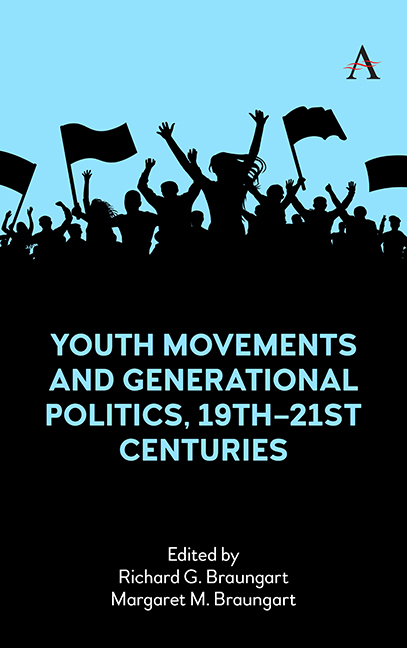12 - Political Generations
Published online by Cambridge University Press: 18 November 2023
Summary
After identifying the origins of the concept “generation” and defining political generations, the historical and contemporary perspectives of political generations are discussed. In the past, much of the theoretical and empirical literature on political generations emphasized the importance of either life-course, cohort, or period effects. Recently, there has been a convergence toward recognizing the interactions of these effects on political behavior. This essay outlines main and interactive effects on political generations, offers an interactive model of political generations, and briefly applies the model over four historical-generational periods. Some of the problems as well as suggestions for testing an interactive approach to political generations are presented.
Introduction
The Concept of Generation
One of the oldest explanations for human behavior is rooted in the concept generation. The earliest meaning of “generation” was in a biological sense, indicating genealogical descent from father to son, and as far back as the days of the ancient Greeks, the social significance of generational membership was recognized (Feuer 1969; Nash 1978). An appreciation of the importance of the concept generation continues today, as reflected in Wohl's (1979, p. 203) statement: “The truest community to which one can belong is that defined by age and experience.” The significance of a generation is not only a shared age-group membership—based on life-cycle characteristics (maturational patterns and changes that occur as a function of age) and cohort position (demographic and social factors associated with time of birth)—but on the sense of social consciousness and participation in the historical process that may develop within any generation. At times, generational consciousness has become so strong that the members of a generation have mobilized and changed the course of history. As the youth generation in England in the 1930s was told, “The enemy is the old gang of our present political system…. The real political division of the present decade is not a division of parties but a division of generations” (Larsen, Hagtvet, and Myklebust 1980, p. 543); and as Octavio Paz wrote about Mexico's revolutionary generation of 1910, “A new generation had risen, a restless generation that desired a change” (Feuer 1969, p. 176).
- Type
- Chapter
- Information
- Youth Movements and Generational Politics, 19th-21st Centuries , pp. 293 - 328Publisher: Anthem PressPrint publication year: 2023



